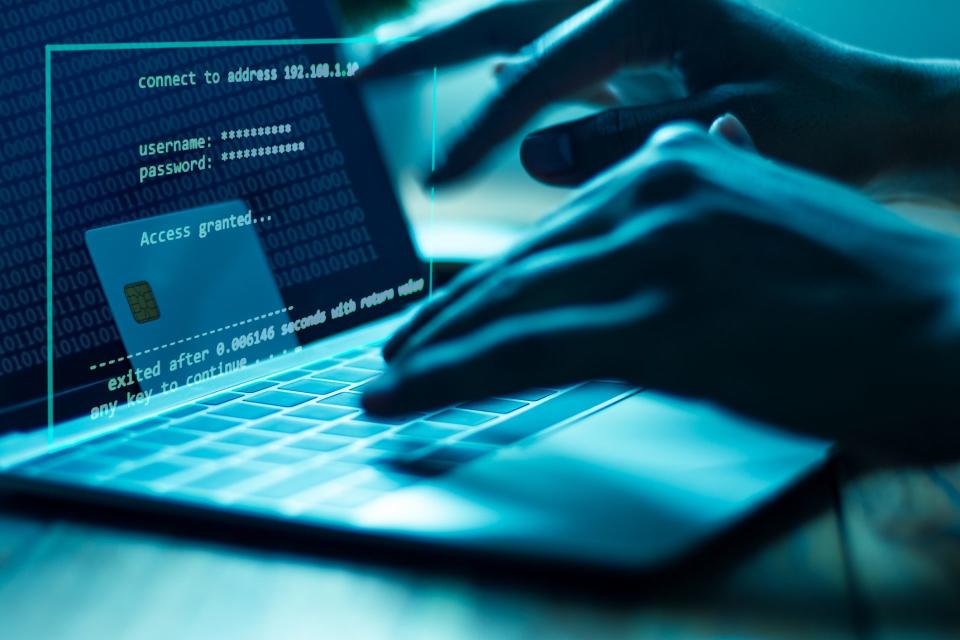Was Money Stolen From Your Bank Account? Here’s How To Get It Back

Consumer money fraud is on the rise, especially after the pandemic hit. The Federal Trade Commission received 4.8 million identity theft and fraud reports in 2020 — up a whopping 45% from 2019.
See: 5 Things Most Americans Don’t Know About Social Security
Find: 23% of Americans Were Victims of Credit Card Fraud Last Year: How To Protect Yourself
Consumer losses topped $3.3 billion the FTC reports, more than double 2019 levels. They note the most common form of consumer fraud is phishing attacks in which scammers impersonate legitimate people or organizations to trick consumers into providing their personal information — like bank account numbers. Voice calls and text messages are sent to unsuspecting consumers pretending to be from government agencies like the IRS or a tech company persuading you to fix something “urgent.”
Chances are, be it through a credit card or plain old cash hacking, we’ve all come across phishing or fraud at least at some point. Scammers can get a hold of your bank account information and simply start plucking away at your balances. Here’s what you’re entitled to if that happens.
The Consumer Financial Protection Bureau states that if money was taken from your account as a transaction using a debit card or electronic fund transfer, you may have additional protections under federal law. Electronic fund transfers can mean ATM transactions (such as someone stealing your debit card info), purchases using your debit card, online bill pay, and payments you’ve set up as directly coming out of your bank account. In short, essentially most of the transactions most modern bank clients engage in on a day-to-day basis.
If Your Card or Pin Were Lost/Stolen
The CFPB states that if you lose your debit card or PIN, or it was stolen, you have two business days to notify your bank or credit union after discovering the theft or loss. If done within this time frame, the bank or credit union cannot hold you responsible for more than the amount of any unauthorized transactions or $50, whichever is less. If you notify your bank or credit union after the two business days, you could be on the hook for up to $500 in authorized transactions.
The same rules apply if you had cash taken directly out of your account as a result of a stolen PIN or security code.
If You Did Not Lose Anything, But Money Is Still Missing
If an unauthorized transaction shows up on your statement, or something generally just seems wrong with your account, but you still have your card/pin/etc you still need to notify your bank right away. At the latest, the CFPB says you must notify your bank within 60 days after your bank or credit union sends your statement showing the strange transactions. Should you wait longer, you could be held responsible for the full amount of any transactions that occurred after the 60-day period and before you notify your bank.
In order for you to be held responsible for any transactions your bank would have to prove that if you notified them before the 60-day window lapsed, the transactions would never have occurred.
Lengthy travel or hospitalizations can qualify for extensions of this time window.
How Long Until I Get My Money
Once the bank has been notified, it has 10 business days to investigate the issue. The bank must correct an error within one business day after determining that an error has occurred and your bank then has three business days to report its findings to you.
If the bank or credit union cannot complete its investigations within 10 business days, it must generally issue a temporary credit to your account for the amount of the disputed transaction, minus a maximum of $50, while it continues to investigate, the CFPB adds.
See: Here’s How Much You Need To Earn To Be ‘Rich’ in Every State
Find: 10 Cheap Cryptocurrencies To Check Out
In general, keep a close eye on transactions so that you can notify your bank right away. Most banks will issue a temporary credit card right away while they investigate in order to keep customers happy. Careful though — if the bank sees a transaction on your account that seems legitimate and you put a claim against it, you could be asked to pay it back.
More From GOBankingRates
Fourth Stimulus Checks Are Coming From These States — Is Yours on the List?
Social Security Benefits Might Get Cut Early — What Does It Mean for You?
When Social Security Runs Out: What the Program Will Look Like in 2035
This article originally appeared on GOBankingRates.com: Was Money Stolen From Your Bank Account? Here’s How To Get It Back
